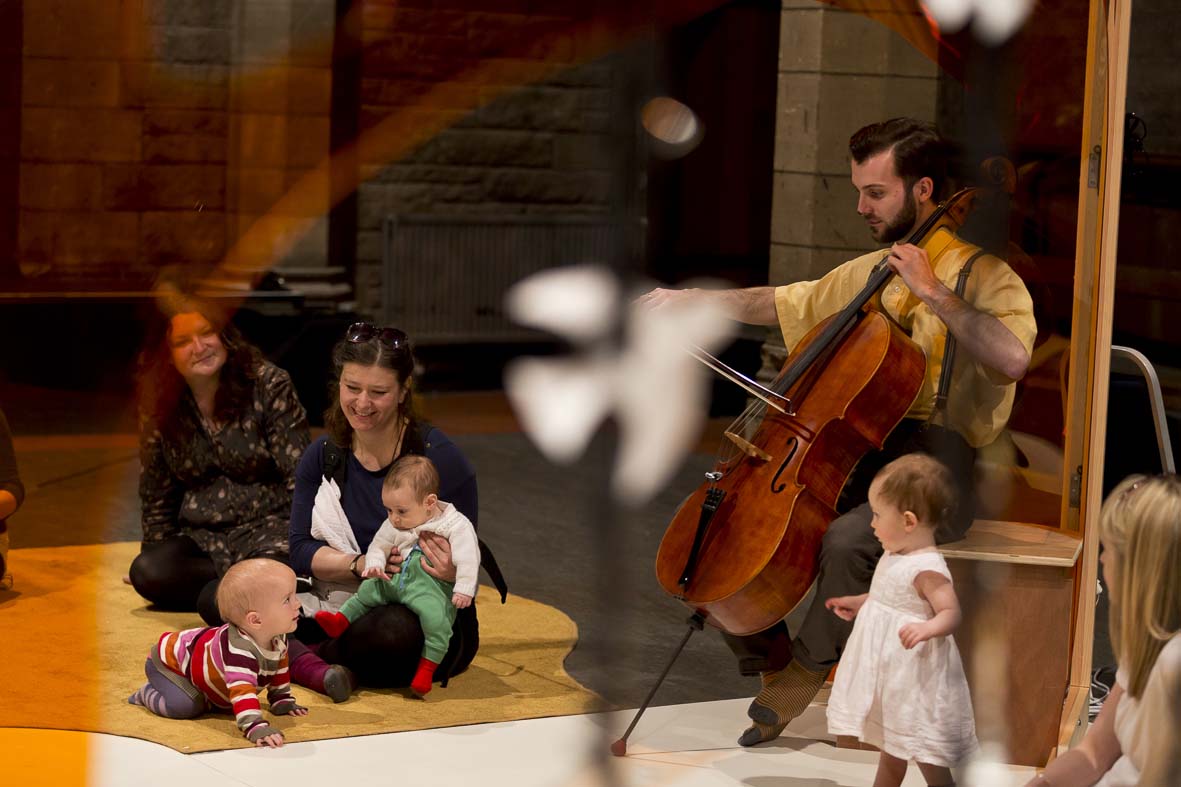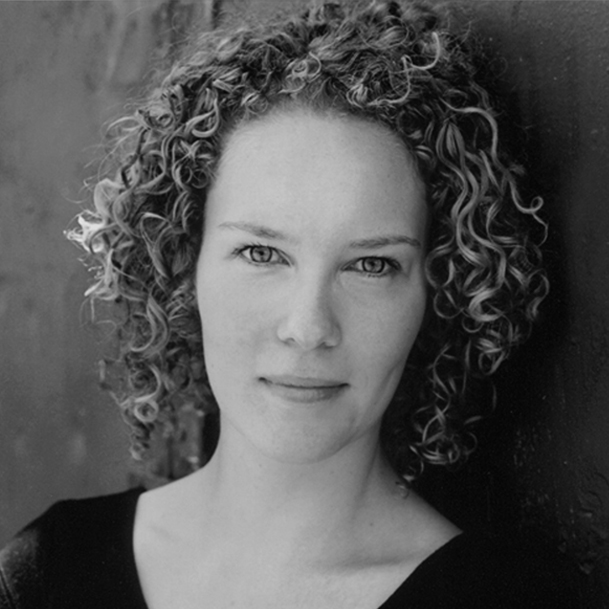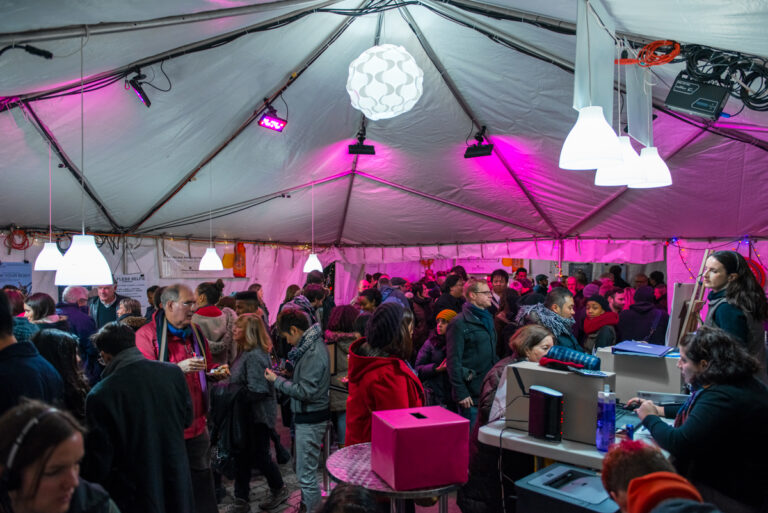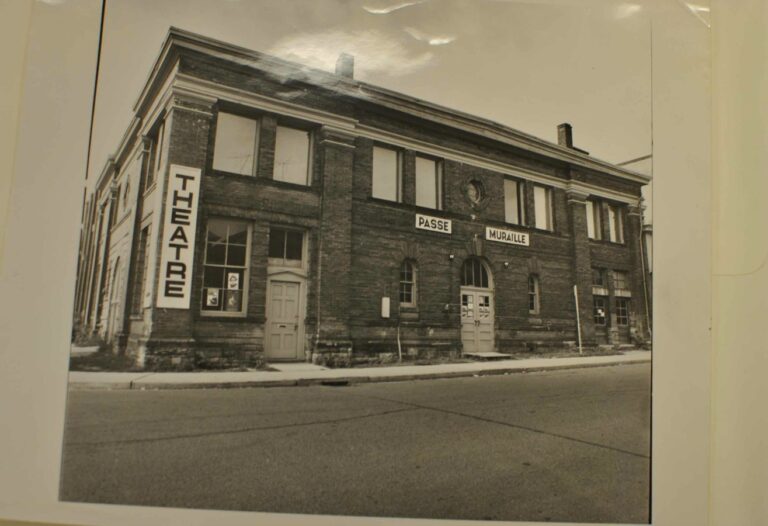Theatre Through the Eyes of a Baby
One great thing about being a new parent, other than always having an excuse to nap, is the fact that you can allow yourself to indulge in ridiculous fears about the future. So, indulge me for a moment.
Here is my fearful fantasy of the future.
I see a jungle of screens. I see screens in our houses, screens in our civic spaces, and screens, if not attached to our bodies, hovering safely close by. I see the warm blue glow of LED light caressing the faces of our youth. I see parents and children fighting about teen relationships, not interracial or same-sex relationships, but “Mom, I’m in love with my operating system.” (As in the fantastic movie Her.)
I see all these things in my parental mind’s eye. Maybe it’s because I just sat on a streetcar with my one-year-old son who was trying (unsuccessfully) to make eye contact with someone, ANYONE, who wasn’t glued to a phone. Maybe it’s because my generation, born in the early 80s, is the last generation to have come of age before the internet and I’m starting to feel nostalgic for a time when people walked to libraries, played outside, and remembered things. In their brains. Or maybe it’s because I’m implicated as well. How often do I reach for my phone to stroke it lovingly in front of Elliot—who watches me with wonder and can’t wait for the moment when I leave it on the couch and he can gently, lovingly caress it as well?
I realize that I’m using a screen to connect with you now, dear reader, thus I would be a hypocrite if I tried to classify all screens and devices as unhealthy. And although a great deal of research suggests that too much “screen time” can be bad for young kids, I’m not going to be too strict about it. But I’m also not going to go out of my way to encourage Elliot to play with my phone. My philosophy is that he will have his whole life to do this, so why rush? And these early years are a critical time for learning about some very simple (and also profound) facts of life. His chief discoveries of late being the following: Food tastes good. Outside is fun. Doggies = yay.

Claire and her son, Elliott
More than anything, though, he is discovering how to be a human. He is learning how to connect his fledgling mind with other minds in his community. He is learning that his senses can provide him with very useful information, and that he can use this information to affect change in his life. He is learning about what it means to have emotions and, in a very basic way, how to control those emotions. These realizations are building powerful connections in his brain—a brain that is rapidly streamlining itself from about eighty-six billion neurons down to the half or so that he will need to live a grownup life.
So how do we (as parents, as a community, as a city) foster these incredibly potent connections in our babies and kids?
I’m a theatre artist. And I’m a new parent. In some light, those two identities seem hard to reconcile. But what I’m discovering is that the very thing that drew me to theatre in the first place is exactly what I want to share with Elliot in his early years. A place to learn about human connection, to feel deeply and question one’s assumptions, to see and hear beautiful things. A place of community, united in space and time.
These experiences are not usually offered to very young children. Until recently, it was assumed that babies didn’t have a whole lot going on inside their brain and thus would not benefit from something as complex as theatre. But child psychologists are learning that babies are really quite sophisticated with their emotional, intelligence-gathering, and decision-making skills.
Surprisingly, to me at least, there is a dynamic community of theatre-makers in Europe who are putting this new research to use by creating theatre for our very youngest audiences: babies and toddlers. Toronto’s Theatre Direct wanted to kick-start this movement in Canada and encourage a greater focus on this important audience and their cultural rights to arts and culture. The 2014 launch of the WeeFestival of Theatre and Culture for Early Years featured eight productions from Europe and Quebec as well as Old Man and the River, a new play for three- to six-year-olds.
The idea isn’t an obvious one, and many thought it wouldn’t work, says Lynda Hill, artistic director of the festival. “Many parents were fearful their children ‘wouldn’t last or sit still,’ and daycares were reluctant to bring their youngest out to the theatre,” she says. But the opening performance of a Quebec show for babies called Waves, all that Glows Sees, performed in a glowing white tent, worked powerfully to change minds. Hill is emotional in recalling the experience. “I sat next to a small group of mothers and their babies and when the performance began, the faces of the babies shone with wonder while happy tears streamed down the faces of their mothers—they were so moved to share this experience with their child. This was one of my happiest memories.”
When the festival returns this May, I’ll be attending the shows with my little one and writing about my experience. I can’t wait to see the adventures of Pekka the tiny turtle. And I’m curious to watch while a puppeteer conjures an epic tale out of a pile of woodchips and branches in Woodbeat. I’m even more excited to see how Elliot reacts.
I hope to see some of you there. Bring your babies. Or bring a friend’s baby. Or come alone. I’ll wager a guess that these shows will not only be beautiful and fun, but will also help us adults remember the foundational values of this art form that we love: Go to a space. With other humans. Watch, think, feel, learn, discuss.
Published May 16, 2016
The WeeFestival returns this year and will be running from May 11-20, 2019 at various venues across Toronto.
Click here for tickets or more info about the WeeFestival.











Comments